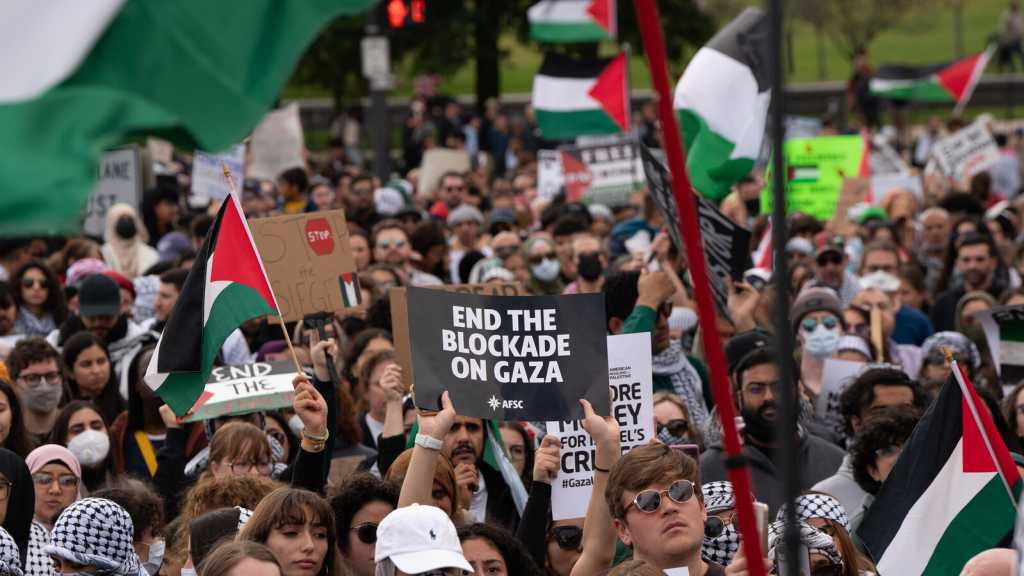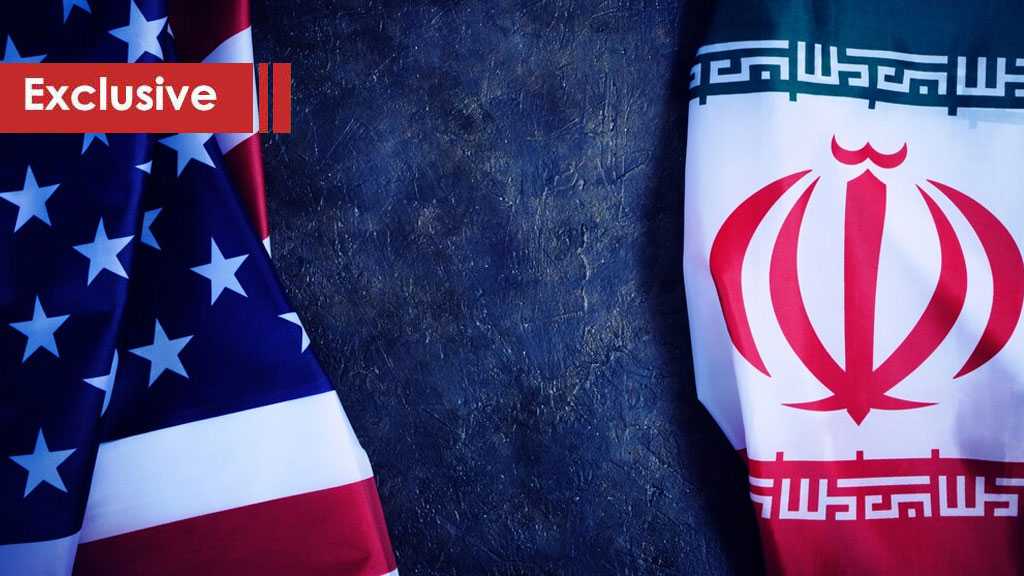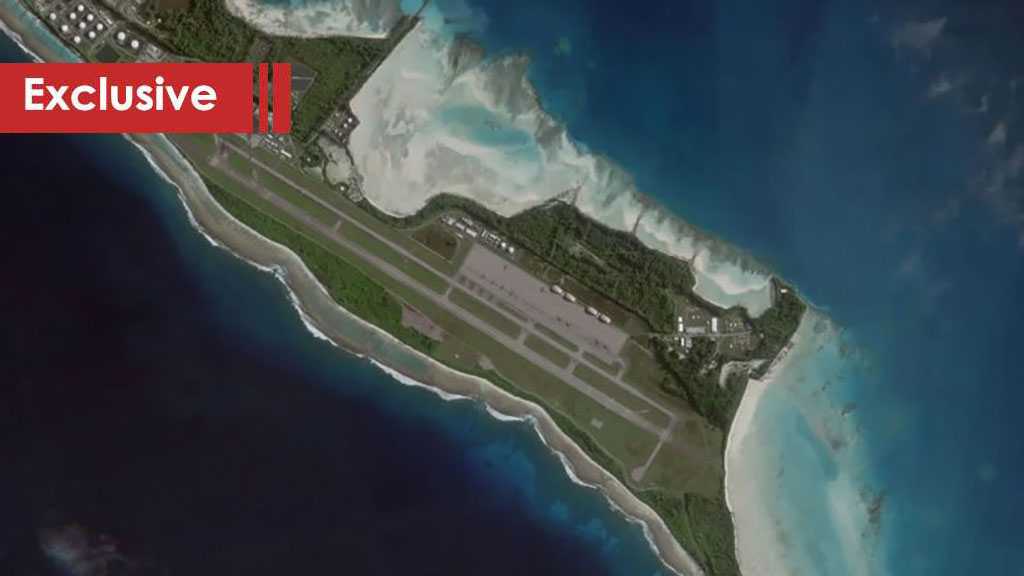
Exclusive Interview with Ex-Pentagon Employee Michael Maaloof on US Policy in Middle East Region

In an interview with Michael Maaloof, a Lebanese-American expert on US foreign policy, and former Pentagon employee, moqawama.org sheds light on the Obama foreign policies, and the US scheme still played in Lebanon to target the Resistance.
Q: What are the roots of the American policy in the Middle East at the time of Obama?
MAALOOF: The roots initially were to change the focus of U.S. foreign policy to reflect more engagement and away from what had become a pre-emptive approach of the Bush administration.
The reason for that was the belief that through engagement, more could be accomplished with countries that the United States had labeled as part of the "axis of evil," namely Syria, Iran but also North Korea.
Despite his Cairo speech in which he appealed for closer relations between the U.S. and the Muslim world, President Obama began to follow a more traditional U.S. Middle East approach that has made it indistinguishable from the Bush administration.
In addition, the Obama administration deceived the Middle East by promising one thing and then doing just the opposite, namely on the Turkish-Brazilian nuclear swap deal with Iran. The administration even had encouraged the approach as a remedy to the impasse over the issue of Iran's nuclear enrichment program but then reversed itself and actually began to oppose it.
The opposition was due to increased Zionist pressure from the U.S. Congress on the administration to sanction Iran because of its nuclear development program, even though Iran is a signatory to the Nuclear Non-Proliferation Treaty and for the most part has adhered to its provisions of allowing inspectors from the International Atomic Energy Agency, or IAEA, to view its facilities and to declare others.
However, "Israel" is not a signatory to the NPT and has more than 200 strategic and tactical nuclear weapons. Yet, "Israel" was calling for the bombing of Iran, which the Obama administration first opposed, but then agreed to increased sanctions as a compromise. Such a betrayal of trust to Iran and Turkey sent serious signals throughout the Middle East that the Obama administration doesn't keep its word and cannot be trusted.
The NPT gives Iran the right to develop nuclear energy and engage in enrichment for its nuclear reactors. Yet, the U.S. as a signatory to the NPT had taken it upon itself to declare what would be, or would not be, allowed under the NPT, and that is not what the NPT says. For "Israel," its leadership has wanted nothing less than Iran's destruction, along with destruction of the Resistance, which Iran supports. It all has been part of a calculated effort on "Israel's" part to go along with "diplomacy" --- meaning further sanctions and if those didn't work out, then Tel Aviv felt free to proceed with attacking Iran's nuclear facilities. Now, the crisis in Lebanon also shows that any positive U.S. influence in the Middle East has disappeared. The hallmark of U.S. Middle East policy appears to be oriented toward providing especially Gulf Arab countries nothing more than military assistance, as opposed to the approach Iran and Turkey are taking to look to rebuild infrastructure in such countries as Lebanon.
A similar idea to assist Syria with its infrastructure development also has been ignored, as it was during the Bush administration. Consequently, the policy approach of the Obama administration today is hardly indistinguishable from that of the Bush administration. Despite being in office for two years, the Obama administration continues Bush's two wars, and may be evolving into further military involvement in Yemen and even extend the war in Afghanistan into Pakistan. All of this, however, offers a unique opportunity for such countries as Turkey, Iran, Syria and Lebanon to offer a more positive alternative to develop markets from the Middle East to Central Asia as a counter-balance to the U.S. military preoccupation.
Q. Do you think the role of Obama is over now, a black man holding a Muslim middle name, a man that promised change, and promised to stand by the oppressed and the tyrannized? Was everything he promised only a dream?
MAALOOF: Of course, actions speak louder than words, and the actions of the Obama administration despite earlier promises, is in virtual lock-step with "Israeli" foreign policy, particularly on the "Israeli"-Palestinian talks and the issue of a separate Palestinian state.
This lock-step policy with "Israel" has actually put the U.S. in a box from trying to develop a creative solution to these outstanding issues. For example, U.S. policy calls for working out an "Israeli"-Palestinian solution by going through "Israel" which, if you listen not only to "Israeli" Prime Minister Benjamin Netanyahu and especially his foreign minister, Avigdor Liberman, there's no other way.
Now, there is international support gathering for Palestine to declare an independent country unilaterally, an issue which would need to go before the United Nations Security Council. The U.S., however, already has indicated that it would veto such an approach. So, the dream remains a dream, notwithstanding initial grandiose intentions when the Obama administration first came into office. While Obama may privately want to press to make these dreams come true, the reality is that an "Israeli"-influenced U.S. Congress controls the purse strings and would certainly vote against any funds to implement those dreams.
For example, "Israeli"-backed members of Congress in powerful members of important committees -- and who also happen to be Jewish -- had blocked any further funding of the Lebanese Army. The Obama administration only gave lip-service to the need to release any hold on further funding. Now, those same members of Congress are talking about limiting assistance to Turkey because of its support for Iran and its opposition to expansion of the North Atlantic Treaty Organization, of which it is a member, into Central Asia.
Here again, Turkey, Iran and Syria can take the initiative in a kind of "Crescent partnership" to invest and create markets in those countries where the only U.S. initiative is to commit more and more military forces instead of being more creative and looking for solutions to bettering the region's economy and creating jobs. Ironically, the European Union, despite its trouble in allowing Turkey to become a member, actually is looking to Turkey to help create those markets so that the EU countries also can make long-term investments.
Q. Can you redefine the U.S role in the "Israeli"- Palestinian Peace process? Where did it head to? And are there any changes, knowing that the peace talks have thus far yielded nothing of value, at least not as far as settling the decades-long struggle?
Was there any change in the long -term strategy in the Middle East?
MAALOOF: The U.S. role is pre-ordained to failure because it is intertwined with "Israel's" policy approach to a resolution. That resolution, however, has continually failed -- namely, a resolution through negotiation with "Israel," which doesn't have any intention of compromising. While the U.S. initially opposed "Israeli" settlement construction in the West Bank, the U.S. has caved to "Israel's" intransigence and arrogance in not only resuming but accelerating settlement construction. The Obama administration approach is nothing more than a mirror-image of that of the Bush administration, and that policy hasn't amounted to much. It is clear that countries of the Middle East region will need to take the initiative to reach a resolution and pressure other countries to get the United Nations to allow a unilateral declaration, since nothing else has worked. U.S. policy has been, and will remain, intertwined with "Israel".
Q. Do you think the Americans really care about humanitarian issues, and Human Rights, especially when talking about the Arabs in the West?
MAALOOF: The American people are a very giving people. They are also very sensitive to human and civil rights of all citizens. While the press likes to talk about an Islamophobia, it centers on specialized U.S. groups associated with the Zionists who want to perpetuate that thinking in an effort to cast aspersions on all Muslims. There are a number of special interest groups in the U.S. involved in national security issues that like to say all Muslims are bad and claim there are no moderate Muslims to challenge extremists who call for jihad not only against the "infidels" but those Muslims under Takfir (blasphemy) who are not as radical as they are. The U.S. Government has helped perpetuate this notion by linking legitimate resistance such as Hizbullah and Hamas with Al Qaida. It is easier for the U.S. to lump them all into one category of "terrorists" and they all just happen to be of Arab or Middle East origin. Because the American people get most of their news from the regular media which often is guided by Zionist perceptions, it is understandable that they would be cautious.
It will mean more of an educational process, but such notions will be challenged by attempting to link such entities as the Council on Arab-Islamic Relations with so-called terrorists such as Hamas or Hizbullah, as they have done. CAIR, for example, is a major advocate for Arab rights in the U.S., and they do a very good job of it, going after the likes of an entity called the Investigative Project that is run by a Jewish cabal that sees a jihadist under every rock and attempts to show that all Arabs in the U.S. are seeking to undermine the U.S. constitution and establish Sharia'a law
Q. What's the real story in Iraq in your opinion, what's the real reason of putting U.S troops on Iraq?
MAALOOF: Iraq was envisioned by the Zionists not only in "Israel" but also in the U.S. as a stepping stone into the entire Middle East to press democracy into those countries in the Middle East. U.S. policy in effect became an instrument of further "Israeli" goals.
The argument of weapons of mass destruction as a basis for invading Iraq was an excuse, since a number of analysts in the U.S. didn't believe that Iraq still possessed operational weapons of mass destruction. Iraq appeared to be the weakest point for the U.S. to establish a foothold in the Middle East aimed at containing Iran, with the help of other Arab Sunni countries, especially Saudi Arabia. By positioning itself in Iraq and establishing a government favorable to its presence, the U.S. then contemplated on establishing bases from which it also could contain Syria and attempt to undermine those entities which the U.S. had declared as terrorist groups supported by Iran and Syria.
All of this was done to further "Israeli" goals in the Middle East. When you know that Paul Wolfowitz who was the deputy secretary of "Defense" had intentions of collapsing the regime of Saddam Hussein long before he was appointed to that position, and had Douglas Feith as an undersecretary of "defense" for policy -- all Jews who supported "Israel" -- it is clear that U.S. policy was used to bolster "Israel's" position in the Middle East, even by force. Prior to the invasion of Iraq in March 2003, there was an opportunity through the good offices of the Syrians to come to terms with the former Iraq regime without an invasion.
The Iraqi had proposed to the U.S. some six unconditional terms to which it would agree if the U.S. didn't invade. Some of the provisions were short term, others long-term. Two of the provisions could have been tested immediately to determine commitment to those terms. Once was especially notable -- Iraq had proposed that the U.S. could introduce some 5,000 U.S. troops into Iraq to look for weapons of mass destruction. The Syrians under the arrangement were prepared to stage them for introduction into Iraq. However, U.S. policymakers rejected to offer and decided to invade Iraq to accomplish regime change altogether and install a government which it could control. Following the military operation, however, that plan began to fall apart as Iraqis soon began to look at the U.S. as occupiers, not liberators.
Q. Moving on to Lebanon, the Americans and Europeans were expecting Former PM Saad Hariri to become the New PM, so that they can preserve the STL indictments and assure they go on the right path. Now that Najib Mikati was elected what will happen to the STL?
MAALOOF: The West, especially the United States, undoubtedly will pursue the indictments of the Special Tribunal for Lebanon despite recent political changes in Lebanon, if for no other reason than to stand up to what it perceives is a government run by Hizbullah. Knowing Hizbullah's position regarding the STL, the U.S. which regards Najib Mikati as their choice to run the Lebanese government intends to use the STL to stand up against Hizbullah. It probably represents one of the few legs of influence the U.S. believes it has remaining in Lebanon. In backing the STL, it will be a lame effort by the U.S. to show continued support for Saad Hariri, whose premiership was deposed as a result of the recent cabinet walkout and the subsequent selection of Mikati as prime minister-designate.
Q. Where do you think Lebanon will go after the STL indictments if the "WANTED" aren't taken into justice? Will we see another street clashes?
MAALOOF: I seriously doubt that whoever is named will be rounded up and handed over to The Hague for prosecution. First of all, there is serious question over the politicizing of the entire STL process and any round-up, if it were to occur, then would raise disturbing issues over any fair trial of the accused. There remains strong indications that the entire investigation of the STL was manipulated by elements loyal to "Israel" in an effort to go after Hizbullah to destroy it.
Given the rising popularity of Hizbullah in Lebanon, manipulation of the STL with the hope of laying blame to the Resistance and thereby weaken its standing was just about all the leverage the U.S. and "Israel" had in an attempt to influence its demise. I do expect the March 14 group to demonstrate in the streets following release of those indicted, but also believe the Mikati government will be able to control events and maintain stability in the country. Like previous demonstrations with the naming of Mikati, I don't see those demonstrations lasting for any length of time and their effectiveness will be limited.
Q. If clashes don't occur do you think "Israel" will find a way to attack Lebanon? We're seeing a lot of its planes maneuvering above the Lebanese skies.
MAALOOF: Any clashes will not have the popular groundswell that you see occurring in other Arab countries. It will be isolated and occur in pockets. Right now, any such instability will not be sufficient for "Israel" to take any pre-emptive action against Lebanon. Conditions today are different than they were in the 1980s when "Israel" could march into Lebanon with impunity. Hizbullah Secretary General Sayyed Hassan Nasrallah has made it very clear that such actions will not be tolerated again and will be met with serious repercussions against the state of "Israel" itself.
Having said that, it is apparent from recent statements from the "Israeli" government, especially from its foreign minister, Avigdor Lieberman, that "Israel" will need little provocation to attack Lebanon. Its policy is the elimination of Hizbullah and it views the Lebanese government now, if not being run by, at least controlled by Hizbullah and to them that is unacceptable. I fully expect "Israel" in the months ahead to launch other pre-emptive provocations to try and get Hizbullah to act against "Israel." To the "Israelis," a Hizbullah-backed government is tantamount to Iranian control and given "Israel's" concern over Iran's nuclear program; it is only a question of time now before "Israel" launches an attack on Iran. Already, the "Israeli" leadership is saying that the United Nations sanctions against Iran have failed, which tells me that Tel Aviv is laying the groundwork for such an attack. I am confident that "Israel's" military planning toward Iran is taking into account a military contingency to deal with Lebanon now that its government is backed by Hizbullah.



